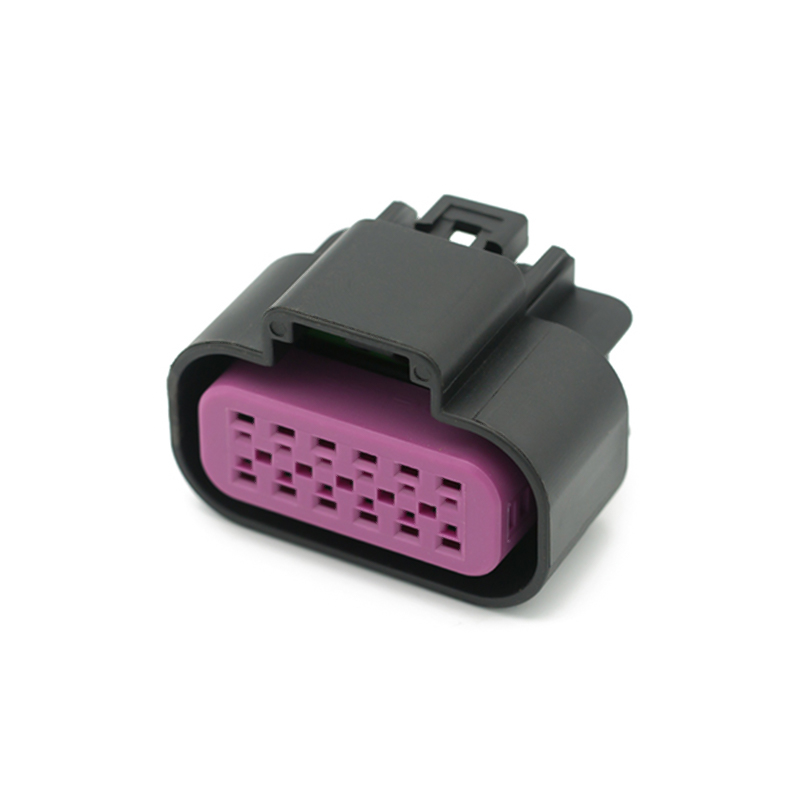12 Pin Connector Solutions Evolve
The electronics manufacturing industry continues to witness significant advancements in 12 pin connector technology, marking important progress in multi-circuit electrical interconnection systems. These developments in 12 pin connector design and manufacturing are establishing improved standards for high-density connectivity across various industrial and commercial applications. The evolution of 12 pin connector systems represents a substantial step forward in electrical connection technology, addressing the growing need for compact yet comprehensive connection solutions in sophisticated electronic devices and complex equipment configurations.
Modern manufacturing techniques for 12 pin connector products incorporate precision engineering and advanced contact materials that ensure reliable electrical performance across multiple circuits. The production process for 12 pin connector components involves careful arrangement of multiple contact points and robust insulation materials, balancing electrical isolation with mechanical stability. This technical progression in 12 pin connector design has effectively addressed the challenge of maintaining signal integrity across numerous circuits while providing secure physical connections in space-constrained applications. The implementation of these sophisticated features in contemporary 12 pin connector systems provides equipment manufacturers with reliable multi-circuit interconnection solutions that meet the complex requirements of modern electronic systems.
Global industrial markets are demonstrating increased demand for advanced 12 pin connector solutions as various sectors seek more comprehensive interconnection options for complex electronic systems. The industrial automation sector utilizes 12 pin connector components in control systems and machinery interfaces where multiple signal and power connections are required. Telecommunications infrastructure employs 12 pin connector products in network equipment and base stations, where high-density connectivity supports complex signal routing requirements. Furthermore, the medical equipment and renewable energy industries incorporate specialized versions of 12 pin connector systems that provide necessary electrical performance while accommodating multiple circuit requirements in compact designs. The versatility of modern 12 pin connector designs makes them suitable for diverse applications, demonstrating their broad utility across different technological sectors.
The engineering approach behind current 12 pin connector technology emphasizes achieving ideal balance between circuit density, electrical performance, and mechanical reliability. Recent innovations in 12 pin connector manufacturing include improved contact arrangements that offer better signal isolation and more efficient mating sequences while maintaining compact dimensions. Production facilities have implemented comprehensive testing protocols specifically designed for 12 pin connector manufacturing, ensuring consistent electrical performance across all contact points and mechanical durability through repeated connection cycles. These manufacturing enhancements have resulted in 12 pin connector products that maintain their performance characteristics in demanding applications while providing the reliability that complex electronic systems require.
The future development of 12 pin connector technology continues to progress alongside evolving industry requirements and technological trends. Emerging innovations in high-density contact design and advanced insulating materials are expected to bring additional improvements to 12 pin connector manufacturing. The adoption of automated assembly systems ensures consistent quality in 12 pin connector production while enabling greater manufacturing efficiency and customization possibilities. As electronic systems become more complex and interconnection requirements grow more sophisticated, 12 pin connector technology maintains its important role in multi-circuit electrical systems. The ongoing refinement of 12 pin connector solutions contributes to more reliable and efficient electronic products across multiple industry sectors, supporting the continued advancement of global electronics manufacturing and technological innovation in high-density connectivity applications.


 English
English русский
русский Español
Español عربى
عربى 简体中文
简体中文




